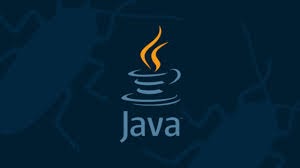Java and Javascript, both may sound similar to one’s ears because of the word ‘Java’ common in both of them, but these two are nothing alike. Although both Java and Javascript are used for developing web and mobile applications, among other things, there are really important differences between Java vs JavaScript. In this article, we shall study the differences between Java and Javascript, and also see how they are similar in any way.
Let us begin with some overview of the two languages.
What is Java?

Java is a class-based, object-oriented, general-purpose programming language designed to have as few implementation dependencies. It was originally developed by James Gosling at Sun Microsystems and was released in1995. Java has several applications in several areas, web development, and mobile application development, being its major applications. Apart from it, it is also used in embedded systems, desktop, and scientific applications, among other things. Java supports 3 billion devices worldwide, including computers, smartphones, printers, ATMs, home security systems, and more.
History of Java

- The project was initiated by James Gosling, Mike Sheridan, and Patrick Naughton.
- Sun Microsystems released it in 1995, and public implementation was released as Java 1.0 in 1996.
- It promised WORA (Write Once Run Anywhere) functionality providing no-cost run-time on popular platforms.
- Java 1.0 compiler was re-written in Java by Arthur van Hoff.
- Java 2 was released in December 1998 with multiple configurations built for different platforms. Later it was renamed as Java EE, Java ME, and Java SE.
- In 1997, Sun Microsystems approached various standard bodies like ISO/IEC JTC 1 and Ecma International to formalize it bu soon withdrew from the process.
- In November 2006, JVM was released.
Features of Java
- Simple syntax and easy to learn.
- Object-Oriented and follows OOPs concepts such as inheritance, abstraction, polymorphism, encapsulation.
- Robust as it makes an effort to eliminate error-prone codes. Also, Java offers Memory Management and mishandled Exceptions by automatic Garbage Collector and Exception Handling.
- Platform Independent, it follows its WORA functionality by running on any platform with JRE's help (Java Runtime Environment)
- Secure, Java's secure features enable us to develop a virus-free, temper free system.
- Multithreading, Java multithreading feature makes it possible to write a program to do many tasks simultaneously. Thus, it utilizes the same memory and other resources to execute multiple threads at the same time.
- Architectural Neutral, the compiler generates bytecodes, which have nothing to do with particular computer architecture.
- High Performance, Java enables high performance with the use of a just-in-time compiler.
- Distributed as programs can be designed to run on computer networks.
What is JavaScript?

JavaScript also abbreviated as JS is high-level, just-in-time compiled, and multi-paradigm programming language that conforms to ECMAScript specification. It comprises of curly bracket syntax, dynamic typing, proto-type based object-orientation, and first-class functions. JS contributes to the World Wide Web's core technologies, and vast websites use it for client-side page behavior. As a multi-paradigm language. JS supports and enables event-driven, functional, and imperative programming styles to build interactive web pages. It offers APIs for working with text, dates, regular expressions, data structures, and the Document Object Model (DOM).
Recommended JavaScript Course
The Complete JavaScript Course 2024: From Zero to Expert!
History of JavaScript

- In 1993, Mosaic Web Browser was released, the first browser with GUI
- In 1994, Netscape Navigator was released a polished web browser
- In 1995, Netscape decided to add scripting languages to the navigator to make dynamic web pages.
- In September 1995, a new language & Its interpreter was devised & was originally called LiveScript, Which was changed to JavaScript three months later.
Features of JavaScript
- Object-Centered Script Language: It supports features like Polymorphism, i.e., an object can take many forms.
- Client Edge Technology: The client refers to the Web Browser concerning the user. The client can have full control over the content, which is updated in servers due to the client's edge technology in Java Script.
- Validation of User's Input: Form validation allows users to interact with clients through filling forms through web pages.
- Else and IF Statement: To perform logical expression.
- Interpreter Centered: The scripting language is built with interpreter centered allowing users to get the output without using the compiler.
- Ability to Perform In Build Function: JS provides many in-built functions like isNAN(), Number(), parseFloat() and parseInt().
- Case Sensitive Format: The codes written in Upper Case or Lower Case format are treated the same way.
- Light Weight and Delicate: JavaScript doesn't include variables and uses only objects to perform the operations, thus providing lightweight and delicate code.
- Statements Looping: Performing the same operations on repeat, i.e., the same code runs in repeat for an unspecified or specified amount of time.
- Handling Events: The Java Script has the ability to control the response on the website. It can control when the user tries to perform any operation the server handled by the client like clicking on links and options, interaction response over the website, etc.
Similarities Between Java and JavaScript
Object-Oriented Programming: Both languages have access to OOPs concepts such as abstraction, inheritance, and polymorphism that require the developers to code objects and their relationships in each other's context.
Front-end Development: Java and JS both extend their applications in frontend development. JS can be embedded directly into HTML, which is implemented as a framework or a library; whereas, Java is used as Java Applet.
Back-end Development: Both languages offer server-side support. Java supports major backend technologies such as JBoss, Apache, and WebSphere. Node.js serve JavaScript-powered servers.
Java vs JavaScript: Key Differences
Let us now see the key differences between Java and JavaScript.
Programming Paradigm
The significant difference between the two languages is their programming paradigm i.e., away a programming language approaches a problem to solve it. Java is an OOP language is based on the concepts of objects. On the other hand, JS is a multi-paradigm language and can be used as OOP, procedural or scripting language.
Type Checking
Type checking verifies the "type" of a variable. JS is a dynamical type language, i.e., the type of variable is unknown until program compilation. On the contrary, Java is a statically typed language, so each variable has to be associated with a type upon declaration.
Inheritance
The concept of inheritance allows an entity to inherit or derive the properties of another entity. Java allows a class to derive the properties of another class. It also supports multiple inheritances i.e.; a class can derive properties from multiple classes.
JS is based on the concept of prototypes and does not support multiple inheritances.
Function Overloading
Functioning overloading allows the programming language to define two or more functions with the same name for executing different tasks. The functions, however, differ based on their arguments. Java supports function overloading, whereas JS doesn't.
Multithreading
Multithreading reduces execution time by executing more than one part of the program concurrently, thereby utilizing CPU power. Java supports multithreading, whereas JS does not support it as the interpreter inside the browser is single-threaded.
Java vs JavaScript: Head to Head Comparison
Parameters |
Java |
JavaScript |
| Programming Paradigm | Strictly object-oriented. | The language is multi-paradigm. It can be used as OOP, procedural, or scripting. |
| Type Checking | Strongly typed, type of the variable must be specified before compilation. | Weakly typed, the type of the variable is unknown until compilation. |
| Code Execution | Java applications run on any JVM or browser. | JS code is browser-specific as it is developed only for browsers. |
| Objects | Java objects are class-based. | Objects in JS are prototype-based. |
| File Extension | .java | .js |
| Memory Usage | Memory usage is more. | Memory usage is less. |
| Multithreading | Supports multithreading. | Does not support multithreading. |
| Language Independency | Java is a standalone language. | JS is contained within a webpage and embedded in HTML. |
| Approach to Concurrency | Java has a thread-based approach to concurrency. | JS has an event-based approach to concurrency. |
| Closures | Does not supports closures. | Supports closures. |
Conclusion
Java and JavaScript are languages that are the most widely used in the development industry. Both languages offer OOP concepts like abstraction, polymorphism to make interactive and secure making web applications. You may want to learn web development using these languages you may want to check out Best Web Development Courses or consider learning through JS tutorials that Hackr.io recommends. You can either learn front-end programming or backend programming for your web applications, as both Java and JavaScript support both areas of web development.
Do you have any other differences to mention between Java vs. JavaScript? Comment below.
People are also reading:
